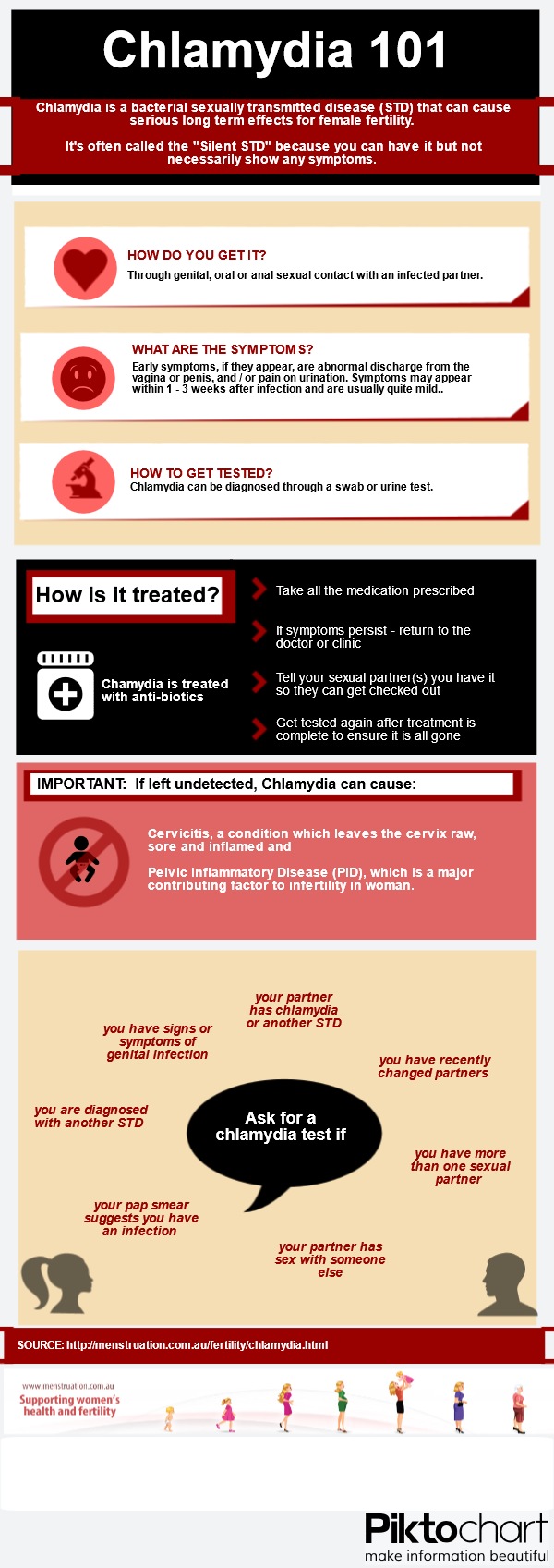Chlamydia is a bacterial sexually transmitted disease that can cause serious long term effects for female fertility. Chlamydia is a particularly nasty STD because an individual may have it and not necessarily show any symptoms. This means that it can silently cause damage to your reproductive organs without you having any idea.

You can get Chlamydia through genital, oral or anal sexual contact with an infected partner. It does not live outside the body and therefore is not picked up from toilet seats or swimming pools.
Symptoms
Early symptoms, if they appear, are abnormal discharge from the vagina or penis, and / or pain on urination. These appear within 1 – 3 weeks after infection and are usually quite mild.
Chlamydia can be diagnosed through a swab or urine test, and is treated with antibiotic drugs.
If you are diagnosed with Chlamydia,
- take all the medication prescribed,
- if symptoms persist – return to the doctor or clinic,
- tell your sexual partner(s) you have it so they can get checked out and
- get tested again after treatment is complete to ensure it is all gone.
If left undetected, Chlamydia can cause cervicitis; a condition which leaves the cervix raw, sore and inflamed and it can cause Pelvic Inflammatory Disease which is a major contributing factor to infertility in woman.
So you should ask for a chlamydia test in the following circumstances:
- you have signs/symptoms of genital infection
- you are diagnosed with another STD
- your partner has chlamydia or another STD
- your pap smear suggests you have an infection
- you have more than one sexual partner
- you have recently changed partners
- your partner has sex with someone else
Doctors also recommend that women under 25 years of age who have more than one sexual partner get tested regularly even if they don’t show symptoms. Precisely because often there are no symptoms means every woman needs to be vigilant if she values her reproductive health and future fertility.
References – Women’s Health in Women’s Hands by Deborah Cooper pages 226 – 227
Chlamydial Infection by the National Institute of Allergies and Infectious Diseases http://www.niaid.nih.gov/factsheets/stdclam.htm


